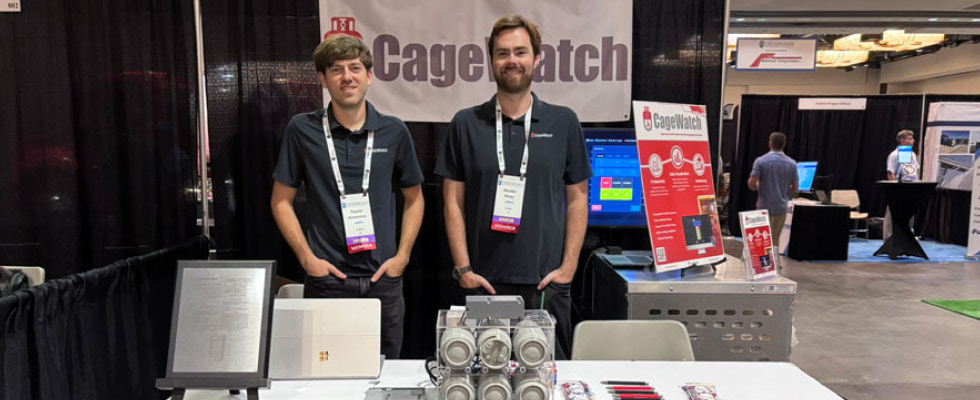
The opportunity for starting new adventures in propane is everywhere, including in how forklift propane cage systems are operated.
Hunter Raley, founder and CEO of CageWatch, a propane technology startup, found his own opportunity in the niche market of forklift cylinder cage technology. BPN sat down with Raley to learn more about his experiences founding a propane startup company, as well as the technology CageWatch employs to streamline cylinder delivery.
What is the story behind starting CageWatch? What are the main gaps in cylinder cage technology that you are seeking to meet?
CageWatch started during the height of the forklift cylinder shortage. While trying to get a small cylinder delivery company started myself, I ran into some major challenges with a couple customers who would always wait until they were completely out of propane to call for a delivery. With lead times on forklift cylinders from manufacturers estimating almost 18 months at the time, I decided to dedicate some time and effort to create a tool that maximizes my profit per delivery and ensures my customers never run out of gas and switch to a different supplier.
Can you describe how CageWatch’s technology works?
CageWatch is designed to retrofit into forklift cylinder cages to monitor the orientation of tanks within the enclosure. Forklift operators are typically instructed to position empty cylinders in the cage facing backward. Utilizing this practice, CageWatch enables automated, just-in-time deliveries for forklift customers, replacing traditional scheduled or will-call delivery methods.
What has the process been like developing this technology, from early brainstorming sessions to steps toward current licensing and development?
Developing this product has been a slow and challenging journey. I set some strict feature requirements from the beginning, like extended battery life and over-the-air updates for future software and hardware improvements. Engineering for hazardous environments like propane locations demanded extra effort and frequent redesigns. With guidance from our certification partner and collaborators, we modified the original design to meet industry standards, addressing questions and making informed decisions daily to create the best solution possible. One of my favorite stories to tell is when the device detected cylinder theft from a customer’s cage at night, allowing me to quickly replace the stolen cylinders before they impacted operations. We could not catch the bandit, but it did help my customer solve a few other theft issues they were having.
Is there anything you think readers would find interesting about the current cylinder market?
The market remains stable, much like forklift cylinder design, which hasn’t needed updates in years. With certain industry standards firmly established, engineers have room to innovate around them. The main challenge is developing solutions that genuinely benefit the industry’s daily operations.
Have you encountered any challenges in operating a startup business in a well-established market?
We have consistently faced significant challenges. Operating within an industry where even the slightest spark poses the risk of catastrophic incidents necessitates that we design products and solutions adhering to the highest safety standards. The introduction of new products, particularly electronics, is typically approached with caution in this market. Securing partnerships with other cylinder delivery companies for live product testing with their customers emerged as our greatest obstacle. The absence of external feedback from other suppliers during early development and testing required us to address all potential issues independently, relying solely on our internal expertise and research.
Are there any meaningful partnerships — either with other industry members or companies — that you have formed during this journey?
We have engaged in discussions with industry members. Currently, we are in preliminary conversations with long-term industry participants about potential partnerships to develop a more streamlined solution for all stakeholders.
Do you have any plans for future growth? What do you hope to achieve in the near-term and in the future?
With a successful launch in the U.S. and Canada, there is potential to expand into Australia and other markets. The propane industry operates globally and plays an important role in logistics and the supply chain. Enhancing efficiency within the supply chain benefits all parties involved. There are also plans to broaden the application of certain technologies beyond forklift cylinders, though we have quite a bit of work to do before we can truly speak to it.
What advice would you give others looking to innovate or establish new businesses in the propane tech industry?
There is plenty of room for innovation in any industry but especially in one dedicated to service. Looking at our own daily operations and where we can improve our services will in turn increase our profits.


